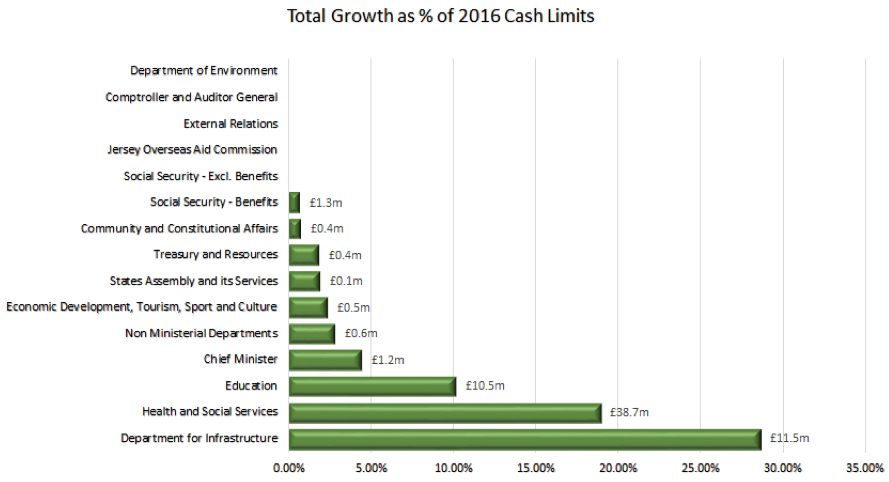

Today the Council of Ministers have published a plan outlining how they will spend our money in the years 2017-2019.
Ministers are trying to solve the intractable (and some would argue impossible) problem of how to provide a comprehensive public service in a low tax environment.
Last year, the Council's independent financial advisers - called the Fiscal Policy Panel - said that if Ministers carried out their spending plans but didn't change the way they did business, the States would be left with a £145m hole in the budget by 2019.
This is an attempt to avoid that.
Understandably Ministers are tackling the issue from both ends: making savings while raising revenue. The headline revenue earner is a health charge, which will raise £15m a year by 2019. States departments themselves are having a good shakedown, too - particularly those whose raison d'être doesn't fit in with the States' strategic priorities. Environment and Social Security are two departments conspicuous by their absence.
So, what are the key numbers?
£73m - savings made across departments by 2019
£4m - amount raised through introducing user-pays charges
£10m - saving through containing benefit spending
£11m - amount raised through charging businesses to dispose of their rubbish and liquid waste
£70m - extra spent on 'priority' services by 2019. This includes an extra £40m on health and social care, and £11m on education.
£168m - spent capital projects from 2016-19, including more than £56m for Les Quennevais, Grainville and St Mary’s schools and £43m for a new sewage treatment works. The £450m+ needed for the new hospital is not included in this plan. That's a debate for another day but Ministers have already said that they may go out to the markets for a bond, as they did with Andium Homes in 2014.
162 - number of States workers whose applications for voluntary redundancy have been approved, which has saved the States £5.2m a year.
£2m - extra funding in education by 2019 to help more young people go to university.
£35m - money set aside for projects that boost economic growth and productivity.
The plan also includes spending that taxpayers won't have to fund: £200m that Andium Homes is spending from a bond that the States guaranteed in 2014; and £150m that the Jersey Development Company has borrowed to spend on the Waterfront and on the former JCG.
Comments
Comments on this story express the views of the commentator only, not Bailiwick Publishing. We are unable to guarantee the accuracy of any of those comments.